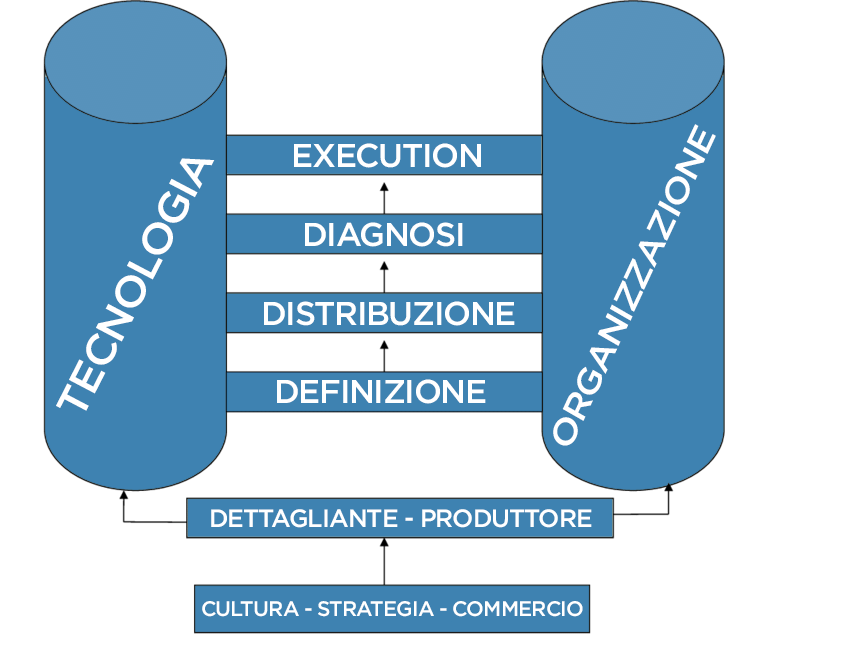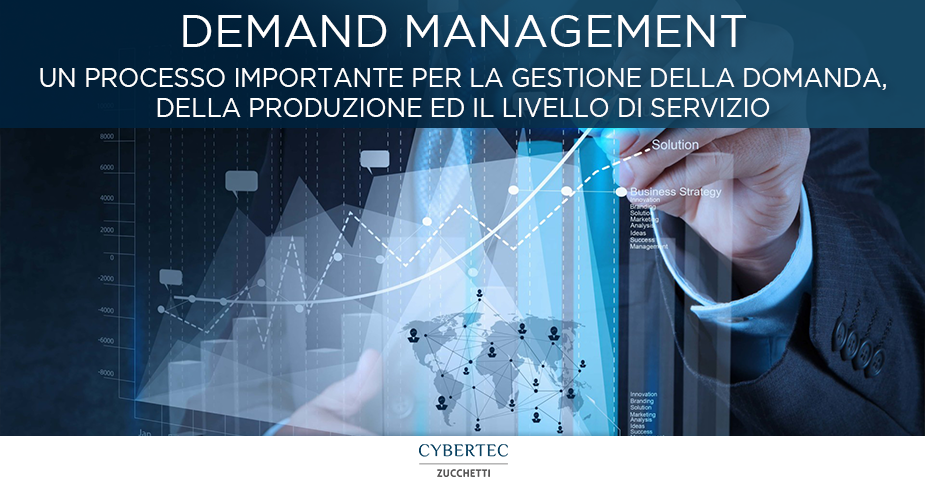Manufacturing companies can no longer do without managing demand and being protagonists of their own future. For this reason, the Demand Management process today is fundamental for manufacturing companies that want to maintain and increase their competitiveness.
Whatis Demand Management
Demand Management is a business process that allows the company itself to adapt its ability to respond to demand or manage the level of demand using marketing or supply chain management strategies.
Demand Management Objectives and Framework
Demand Management is both a stand-alone process and one integrated into the Sales and Operations Planning (S&OP) or Integrated Business Planning (IBP) process.
In its most effective version, Demand Management has a definition that goes far beyond the mere development of forecasts based on the history deriving from the market or from demand analysis that are often left to the interpretation of the supply chain.
The key components for effective demand management, as identified by George Palmatier and Colleen Crum, are:
- Plan the question
- Communicate the question
- Influencing demand
- Organize the application by priority.

The challenges of Demand Management
Implementing a Demand Management system often involves overcoming some challenges.
One of these is a poor understanding of automation algorithms, i.e. how the parameters were set in the replenishment system.
Another is the balancing that is done by sales in working with retailers to create demand models that allow them to determine the timing, levels and locations of promotions.
The third is so-called elusive signals, in which manufacturing companies do not have a data structure or structured process to receive, store and use retailer point of sale data.
The responsibilities of the Demand Manager
The Demand Manager is a figure that connects separate departments: business, production and IT. This is a figure who is asked to collect the instances of an operational area and transfer them to others composed mainly of technicians, trying to develop valuable projects by exploiting the potential of digital technologies.
The Demand Manager therefore has an integration function as it interacts with IT and the different business functions as well as with production.
The breadth of the scope of this figure is determined by various factors, but in general the demand manager is oriented towards project portfolio management, lead management and demand collection.
Differences between Demand Management and Project Management
Demand and Project Management are two processes closely related and functional to the design of innovation in the company.
Demand Management, in particular, is the primary interface between IT and business users for innovation aspects: it allows to collect and manage the different types of requests, coming from business units, but also from IT itself, making them comparable and allowing them to be prioritized with respect to the selection criteria and rules established by the company. It also powers Project Portfolio Management, directing the IT function to better manage resources and priorities.
IT, as a business function, therefore assumes a fundamental strategic value for the evolution of organizations and has the opportunity to support digital transformation throughout the company.
Advantages of Demand Management
Demand Management is based on precise data and there is a need for demand forecasts that are shared, in which the company reaches a consensus, both internally and with the partners that form the supply chain about the expected levels, timing, mixes and localization of demand.
This information should form a common and shared basis for budgeting and logistics processes. In return, several advantages should be obtained from the Demand Management process, such as:
- Effectively anticipating and planning demand allows a competitive advantage to be obtained;
- The implementation of demand forecasting is a key element to improve supply chain processes;
- Better dialogue with the production planning process;
- Demand management can generate gains by acting proactively and driving the market.
Does your company need Demand Management?
Within the company, Demand Management deals with the relationship between the IT service provider and its users, organising their requests and anticipating their information needs. Demand Management assumes a fundamental role in companies with many heterogeneous internal users, which consequently generate a large number of requests. It can also be useful in smaller companies, although in these cases it is better not to over-structure the process, because there would be a risk of over-casting the relationship between business and IT.
In companies where Demand Management is organised, those in charge of Information Services are responsible for structuring the process. But in many other cases, the figure of the demand manager belongs to other departments of the business and there may even be one for each department. The optimal situation occurs when there is both a demand manager at the IT and another IT expert at the user functions.
Demand Management software
People who have to manage demand today can use software tools that support them in their daily activities by enabling processes that are otherwise unfeasible. These solutions support the human element, facilitating its work and allowing it to obtain benefits of great value. Sales and Operations Planning solutions allow operators in manufacturing companies to
simulate the production process from demand to production, if they carry out “what-if” analyses they can quickly identify the best production scenario, predicting risks and profit losses with the possibility of intervening on the most critical resources well in advance.
Learn how to best manage demand and your S&OP process
Today, manufacturing companies can enjoy the competitive advantage offered by software for production planning and scheduling. Software that integrates perfectly with management systems (such as Zucchetti, Oracle and SAP), dialoguing with them and exchanging accurate, timely and up-to-date data. Contact a Supply Chain expert, express your doubts and get the best advice from a company with over thirtyyears of experience, part of the largest Italian group in the sector.
